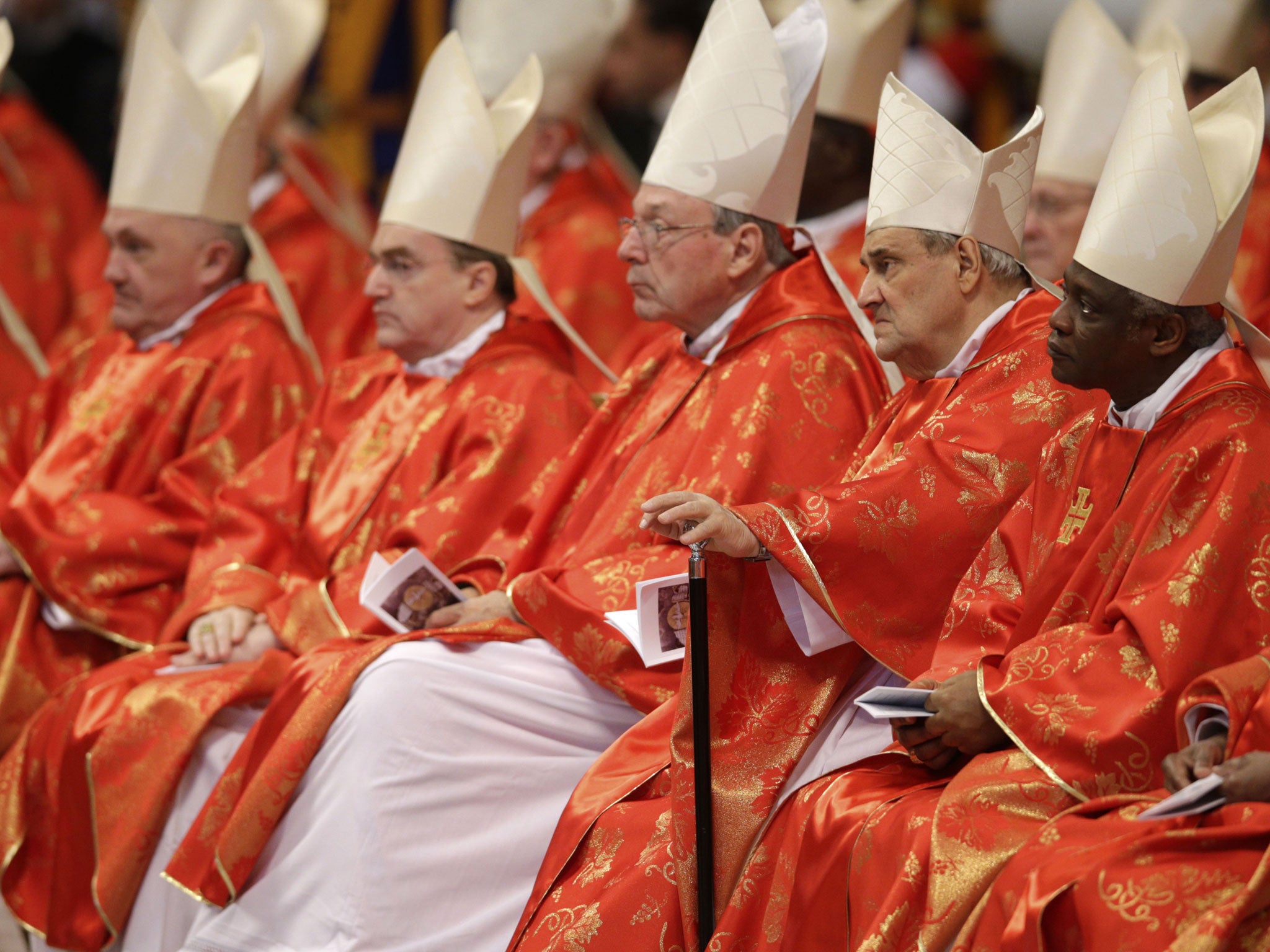Errors and Omissions: We might need a solemn oath to save ‘he’ and ‘she’ from extinction
Our peerless pedant looks over this week's Independent coverage

Could this be a first sighting? Our Wednesday coverage of the papal election reported: “Each cardinal swore a solemn oath with their hand on the Bible.”
Over the past 30 years or so, the use of “they/them/their” to refer to a single person has become more and more common. It has marched hand in hand with feminism. Today it seems bizarre that any time up to the 1970s it was perfectly normal to use “he/him/his” for a person who might be male or female. In the 1980s, that was replaced by “he or she”, and more recently that clumsy formula has been replaced by the once singular “they”. Nowadays, nobody bats an eyelid at a sentence such as “Each person swore a solemn oath with their hand on the Bible” – where some of the people are men and others women.
But the cardinals are all men. There would have been no problem at all about writing: “Each cardinal swore a solemn oath with his hand on the Bible.” So the question arises: is the use of “they” in a singular sense becoming simply habitual, regardless of gender issues? Can we expect “he” and “she” to lose further ground as the decades pass?
One too many: On Monday we carried a review of the BBC Countryfile programme featuring the Prince of Wales. The headline: “One wants to be just one of the farm lads, really.” It is easy, and predictable, to try to raise a snigger by putting the word “one” into a headline about royalty. I don’t think the prince actually uses it very much these days.
You can’t do that: Laura Kaufman writes in from Horsmonden, Kent, to point out a misapplied word from a leading article published on Tuesday. The leader commented on the amazing variety of planets that have been found orbiting distant stars: “Some are unfeasibly dense, their iron terra firma washed by molten metal seas.”
“Unfeasible” is being used here as if it meant “amazing” or “incredible”. No, “feasible” means capable of being done or carried out. A plan or project may be feasible. The word dates back to 1460, and derives from the French “faisable” – as in “faire”, to do. The density of a planet can’t really be described as feasible – except presumably for a divine creator.
Go carefully: This is from a comment piece on Monday, about Vicky Pryce and how the desire for revenge led her into danger: “Of course she made some dreadful mistakes and should have been more chary, but I recognise her pain because long ago I felt it too.”
“Chary” and “wary”, a pair of words similar in both sound and meaning, cause a great deal of trouble. “Chary” means careful, cautious or sparing in giving something out. “Wary” means habitually on one’s guard. You are chary of something desirable that you have, but wary of something you fear, as Vicky Pryce ought to have been.
Join our commenting forum
Join thought-provoking conversations, follow other Independent readers and see their replies
Comments
Bookmark popover
Removed from bookmarks